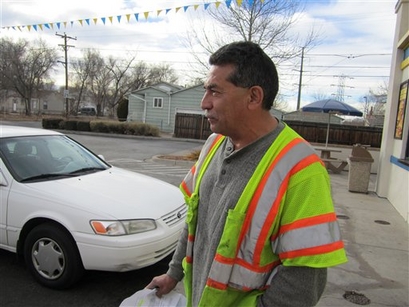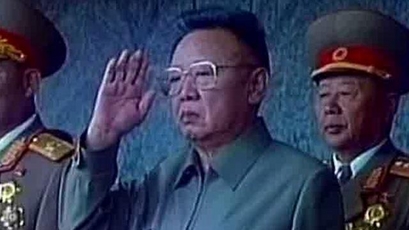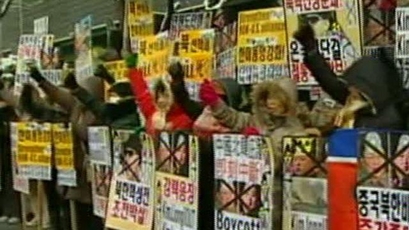Minimum wage earners in 7 states getting raises
DENVER – It will be a happier New Year for nearly 650,000 workers earning minimum wage. They're getting small raises in seven states that tie their salaries to the cost of living.
The minimum wages in those states will go up between 9 cents and 12 cents an hour Saturday because their consumer price indexes rose in 2010.
The extra pennies can't come soon enough for Joe Martinez of Denver, who works odd jobs such as lawn maintenance for minimum wage. In Colorado, the wage is rising 11 cents, from the federal minimum of $7.25 an hour to $7.36 an hour.
"The prices of everything are going up — food, rent, electricity," Martinez, 55, said on his lunch break Wednesday. "I know it's not a lot of money, but any extra money will help, you know?"
[Related: Iconic face of 'Rosie the Riveter' dies]
Poverty advocates say the rising minimum wages shouldn't be seen as raises, just adjustments to keep the working poor at the same level as prices of goods rise.
The National Employment Law Project, a New York-based advocate for workers, estimates that about 647,000 people will see their paychecks go up in Arizona, Colorado, Montana, Ohio, Oregon, Vermont and Washington.
"It just ensures minimum wage keeps pace with the rising costs of necessities like milk and bread and gas," said Paul Sonn, legal co-director for NELP.
The NELP and other workers' advocates helped block a legal challenge to a minimum wage hike in Washington. That state will have 2011's highest statewide minimum wage at $8.67 an hour.
"These people are not putting this money into IRAs and savings accounts. It goes right back into the economy," said Rick S. Bender, president of the Washington State Labor Council, a union group that represents about 400,000 workers.
Ten states schedule their minimum wages to rise automatically when the cost of living rises, but the cost of living didn't rise enough in Florida, Nevada and Missouri to trigger a wage hike.
[Related: How to land unlisted jobs]
In Colorado, the minimum wage hike next year is especially welcome. Unlike most states, Colorado's adjustable wage can drop because of deflation. A year ago, it fell 3 cents an hour to the federal minimum of $7.25 an hour.
It was the first time a state's minimum wage has dropped since the federal minimum wage law was adopted in 1938, although many employers left wages unchanged rather than cut workers' pay.
"The last couple years have been brutal for everybody, for all workers, not just minimum-wage workers," said Rich Jones, director of policy and research at the Denver-based Bell Policy Center, a progressive research group. However, Jones said that even small upticks in the minimum wage can help keep poor people working.
"For the lowest-paid workers, at least they're still able to buy the same level of goods and services in the marketplace, so it is a help," Jones said.
Retail clerk Kimberly Bobian of Denver agreed. Bobian stopped by a corner grocery to pick up a can of tomato sauce and said it's hard to keep her pantry stocked on the federal minimum wage.
"It's going up 11 cents? That's a big deal, definitely," she said. "Food prices are going up, everything goes up, so any little bit helps."
http://news.yahoo.com/s/ap/20101230/ap_on_bi_ge/us_minimum_wage_hikes




